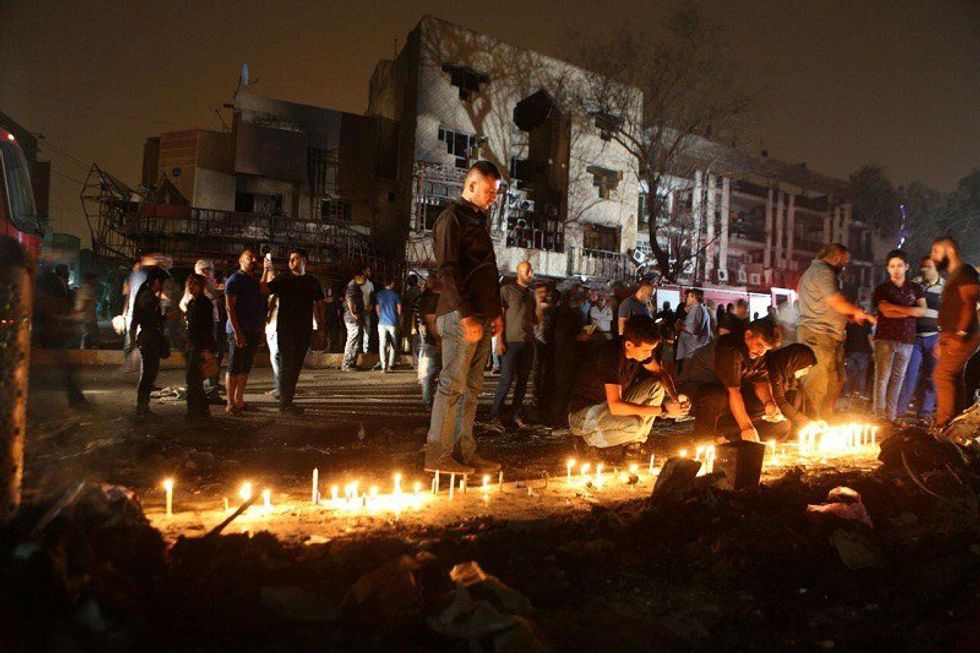The death count from Sunday, July the third’s suicide bombing in Baghdad has risen to 250. This makes it the deadliest bombing attack since the US-led invasion in 2003. A truck planted with explosives blew up on a crowded street in Karada, an overwhelmingly Shia neighborhood. The majority of people there were shopping and socializing after breaking their fast during Ramadan, a traditional time of fasting and prayer in Islam, and were preparing to celebrate the end of the holy month on Tuesday. The area is now almost completely destroyed. A second bomb exploded at a market in the Shaab, another chiefly Shia neighborhood of Baghdad, killing one person and wounding five others.
Rescuers are still searching through the rubble to locate the bodies of more victims, as families carry out candlelit vigils for their lost loved ones. Many of those killed were women and children; around 175 people were wounded. Almost one hundred of the bodies found are so charred from the blast, extensive DNA tested will need to be carried out for identification. CNN reported one couple at the scene who were searching for their teenage son. He had gone to a café in the area to celebrate his birthday with his friends. Another man was looking for five of his relatives, including small children.
The Islamic State (also known as ISIL or ISIS) claimed responsibility for the devastating assault. The Sunni-dominated extremist group claimed it was targeting Shiite neighborhoods, which Karada and Shaab predominantly are. The strike on Iraq’s capital is just one of several strings of attacks that have taken place during the Muslim holy month: there have been recent massacres in Dhaka, Bangladesh, and the Ataturk International Airport in Istanbul, Turkey, as well as security targets in Yemen. There were additional suicide attacks in Jordan and Lebanon, and a more recent wave of suicide bombings also struck three Saudi Arabian cities over a 24-hour period ending Monday. According to CNN, these attacks occurred near the U.S. Consulate in Jeddah, near a Shiite mosque in Qatif, and in Medina, the holy city, where four people were killed. Though it has not been verified as the time of writing of this article, analysts strongly suspect that the Islamic State is behind these three assaults as well.





















